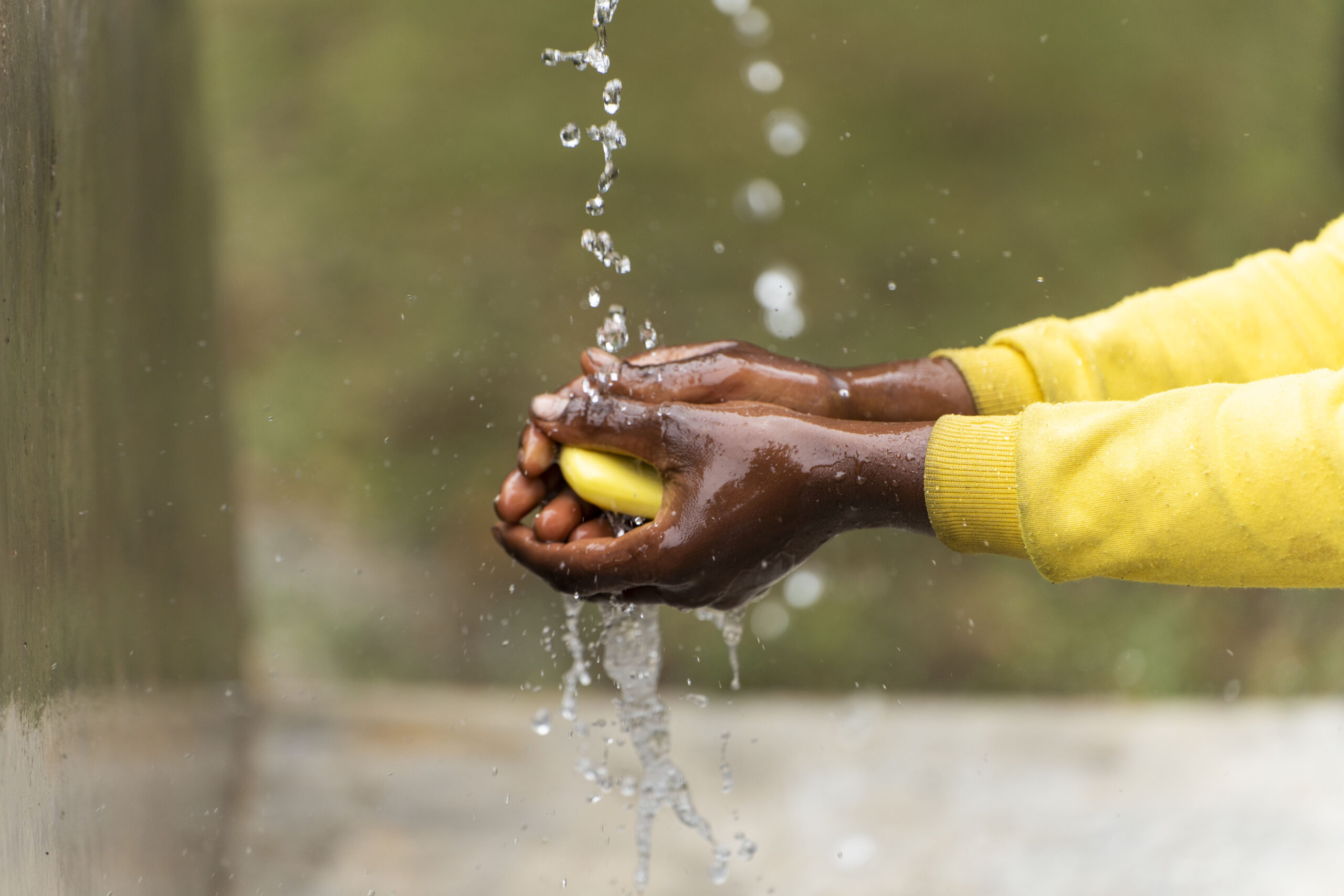Ethiopia and Finland launched 30 years of WASH collaboration celebration
Ethiopia and Finland launched the celebration of three decades of fruitful collaboration in the WASH (Water, Sanitation, and Hygiene) sector at a reception held on June 10th, 2024. The event, hosted by Finnish Ambassador Ms. Sinikka Antila, welcomed visiting Finnish Minister for Foreign Trade and Development Mr. Ville Tavio.
The reception highlighted the significant achievements of the long-standing partnership between the two countries. A photo exhibition was also presented, showcasing the WASH cooperation's milestones throughout the three decades. The Ethiopia-Finland WASH collaboration serves as a powerful reminder of how international cooperation can yield significant improvements in people's lives. This sentiment was echoed at the event, which highlighted the partnership lasting impact.
The bilateral relations between Ethiopia and Finland date back to July 17, 1959. Their cooperation on the Ethiopian WASH sector began in 1994 with the Rural Water Supply and Environmental Program (RWSEP) in the Amhara Region. The program was successfully implemented over the following 17 years, in four phases, up to 2011. In parallel, cooperation was expanded to include the FinnWASH project in five districts of Benishangul-Gumuz over the period 2008 to 2015. RWSEP’s success paved the way for the national launch of the COWASH program in 2011.
COWASH IV: Building on a Strong Foundation
The Community-led Accelerated WASH (COWASH) project, currently in its fourth phase, focuses on rural communities across eight Ethiopian regions. COWASH IV has made significant strides in achieving safe water for all with over 649,660 people now have access to clean water. Beyond water access, the project empowers communities by fostering sustainable solutions through 20 established market-based sanitation centers and 73 WASH Saving and Loan Associations. Recognizing the importance of menstrual hygiene management, COWASH IV has also constructed 20 dedicated facilities, promoting women and girls' health.
This celebratory event serves as a reminder of the impact of the Ethiopia-Finland WASH collaboration. Both nations remain committed to ensuring continued progress in providing WASH access for all Ethiopians.

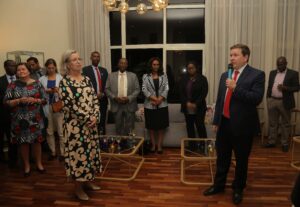
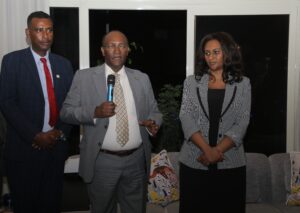
Building Bridges and Expertise: The Impact of Finland's Junior Professional Officer (JPO) Program
For decades, the JPO program, funded by Finland’s Ministry for Foreign Affairs (MFA), has been fostering collaboration and development expertise. This unique program sends young Finnish professionals on a two-year journey to the international work environment including to bilateral projects and United Nations. The JPO program is building bridges between Finland and partner countries and multilateral organizations.
The JPO program has demonstrably strengthened relationships, built development expertise and contributed to project success. Take COWASH IV, a vital water, sanitation, and hygiene (WASH) project in Ethiopia. Under its predecessor, FinnWASH, and now COWASH, nearly ten JPOs have contributed their skills, strengthening the relationship between Finland and Ethiopia. But the JPO program’s impact goes far beyond individual projects. It’s a win-win for young professionals, projects, partner countries and Finland itself.
Launching the JPO Program in NIRAS
The program’s origins trace back to 1996, with the second phase of Rural Integrated Project Support (RIPS) program in Tanzania. Tor Lundstrom, a Senior Strategic Advisor at NIRAS International Consulting, was one of the founders of the program. “There was a lack of opportunities for young professionals to develop their careers in these joint projects,” explains Lundstrom, who was the team leader for RIPS at the time. He recognized this gap and proposed the idea of integrating JPOs into the RIPS program while drafting the project documents. With the support of Mrs. Riikka Laatu, then desk officer at the MFA, his vision became a reality. Teija Jalaskoski and Finland’s Permanent Representative to the Council of Europe, Ambassador Sini Paukkunen, were the first JPOs to participate in the RIPS program, marking the program’s debut within RIPS. This initial success proved to be a turning point. Since then, hundreds of JPOs have participated in projects led by NIRAS, demonstrating the program’s significant expansion.
Empowering Young Professionals
The JPO program offers a launchpad for young Finnish professionals like Sari Aroalho, who is currently working on COWASH IV as a Project Management and Development Advisor. “The program was an ideal entry point for me to gain valuable experience in the development sector,” Sari says.
Sari joined COWASH IV in June 2023 and has been supporting the CTA and the team across various project aspects. She finds this hands-on experience insightful, providing her valuable opportunities for development and deeper understanding of Finland’s development work.
Working in Ethiopia, a new country for her, has been particularly enlightening, Sari explains. COWASH IV’s operations across eight different Ethiopian regions have exposed her to diverse cultures, communities, and working cultures allowing her to witness their distinct approaches and practices. This experience has not only broadened her perspective but has also honed her ability to adapt and navigate multifaceted environments effectively, she explains.
The JPO program provides comprehensive support and a tailored capacity building plan for each participant. This plan leverages their strengths and interests while addressing the specific needs of their assigned project, explains Mikaela Kruskopf, Project Manager at NIRAS International Consulting. NIRAS Finland currently has JPOs working on MFA-funded projects in Ethiopia, Namibia, Nepal, and Zambia.
NIRAS’ commitment to empowering young professionals is also evident through its NIRAS young Professional Academy (NYPA) which began ten years ago. NYPA is a two-year, full-time training program specifically designed for development consulting. Funded and implemented entirely by NIRAS, the program offered a comprehensive curriculum encompassing all aspects of the field. The NYPA program equips young professionals with the necessary skills and knowledge, while the JPO program provides practical experience and project-specific expertise. This approach ensures a skilled and well-rounded generation of development professionals, both within NIRAS and beyond.
Collaboration and Knowledge Exchange
JPOs play a valuable role in promoting collaboration and knowledge exchange between Finland and partner countries. While primarily focused on providing valuable development experience for young Finnish professionals, the program also Promotes a two-way exchange of knowledge and expertise.
JPOs, coming from different backgrounds, bring fresh perspectives to projects, as noted by Tor Lundstrom. This facilitates knowledge exchange and collaboration with local experts, often leading to increased productivity and innovation.
The program also promotes strong person-to-person networks between Finnish JPOs and local experts. This collaboration lays the groundwork for successful development cooperation, which thrives on teamwork, cultural exchange, and relationship building.
Mikaela Kruskopf highlights that JPOs often fill gaps within project teams. Their diverse skillsets enrich the overall expertise, as demonstrated by Sari’s experience with COWASH IV. According to Neil Chadder, COWASH IV’s CTA, “Sari’s in-depth understanding of Finnish, culture, and philosophy has significantly contributed to ensuring a common understanding of the project’s objectives and approach.” This exemplifies how JPOs bridge communication gaps and strengthen collaboration within project teams.
Building Bridges for Finland
The JPO program goes beyond project success and empowering young professionals; it nurtures lasting relationships. “The fact that Finland has been sending JPOs for the last 30 years has created people-to-people connections with Ethiopia,” says Lundstrom. These connections strengthen bilateral relations and create a pool of Finnish development experts with firsthand experience.
The JPO Program plays a crucial role in cultivating a future generation of development practitioners that have actual practical experience from the field, and hence a better and realistic understanding of global development. The Program contributes to globalization in several ways. First and foremost, the program encourages teamwork across borders, breaking down barriers and promoting a collaborative approach to development challenges. JPOs also act as valuable links between Finland and partner countries, fostering understanding and strengthening bilateral relations.
But the benefits extend beyond immediate partnerships. The JPO program also cultivates a future generation of development experts. These young professionals gain invaluable on-the-ground experience, providing Finland and different multilateral international organizations like the United Nations, World Health Organization, and World Bank with talented development professionals. Upon returning, they enrich the country’s development efforts for years to come, their expertise contributing to impactful solutions across the globe.
The JPO program stands as a testament to Finland’s commitment to international development cooperation. It empowers young professionals, strengthens partnerships, and promotes innovative solutions. With its focus on building expertise and collaboration, the JPO program is sure to continue playing a vital role in shaping a more sustainable and equitable future.
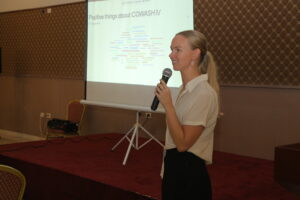
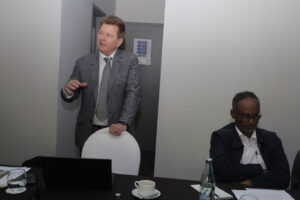
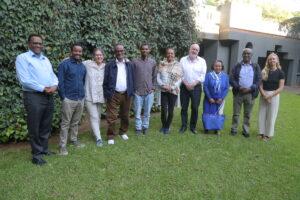
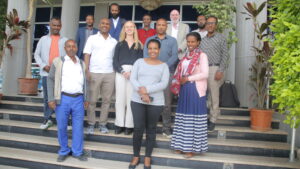
COWASH IV holds critical Core Planning Meeting for the last Ethiopian Fiscal Year of the project
The COWASH IV, a project focused on improving water, sanitation, and hygiene (WASH) access in eight regions of Ethiopia, held its annual core planning meeting for the Ethiopian Fiscal Year (EFY) 2017 from April 23 to 24, 2024, in Arba Minch. This meeting served as the final planning session for COWASH IV, making it a critical juncture to solidify plans and address remaining tasks before this phase of the project concludes in EFY 2017.
Around 70 participants attended the workshop, including staff from all eight project regions’ Regional Support Units (RSUs), Regional Bureaus of Water (BoW), the Federal Technical Assistance Team (FTAT), representatives from the Ministry of Education (MoE), Embassy of Finland in Ethiopia (EoF) and the Ministry for Foreign Affairs of Finland (MFA). Notably, Water Sector Advisor from MFA, Jukka Ilomäki, and Water and Agricultural Growth Advisor from EoF, Gezahegn Alemu, were present. The workshop’s primary objectives were to assess COWASH IV’s performance during EFY 2016 and to establish a concrete plan for EFY 2017.
Neil Chadder, COWASH IV’s Chief Technical Advisor, commenced the meeting by outlining recent developments and critical issues requiring attention within the upcoming year’s plan. Subsequently, each RSU presented progress reports covering the past nine months of EFY 2016. Following these presentations, discussions ensued on overcoming challenges, achieving targets, and outlining the path forward.
Lewam Abebe, School WASH Project Management Unit coordinator at Ministry of Education also presented on the Education Sector School WASH Program and the Ministry’s initiatives, further strengthening collaboration across sectors. Additionally, Paulos Basazenew, a COWASH IV Finance and Audit Support Consultant, provided briefings on internal audit, and Gezahegn Alemu, offered insights from the EoF’s perspective.
The FTAT led presentation and discussions on the planning template where data management and achieving established goals were central themes of these discussions. The final day centered on core planning, with FTAT members outlining the EFY 2017 planning focus areas for each region. Each RSU then convened for dedicated team-based planning sessions.
In addition to the workshop, Sinikka Antila, Ambassador of Finland to Ethiopia and African Union, held a fruitful side meeting with RSU team leaders, and representatives from the MoE and BoWs on the second day, highlighting the ongoing collaboration between COWASH IV and the Finnish government.
Valuable Inputs and Strengthened Collaboration
Participants highlighted the value of the workshop in facilitating collaboration, knowledge sharing, and thorough planning. The workshop provided clear explanations on the planning process, ensuring a comprehensive and inclusive approach that avoids any missed areas in the final plan, said Meaza Kebede Gender and Disability Inclusion Specialist at COWASH IV. Temesgen Buzuayehu, a CMP specialist from the Central Ethiopia RSU team, highlighted the valuable insights gained for planning in the last EFY of the COWASH IV. Similarly, Desalegn Kirose, RSU Team Leader from Tigray, appreciated the workshop’s role in enhancing planning and collaboration. “The workshop equipped us with valuable knowledge and facilitated thorough preparation for planning,” he said.
Emphasizing the importance of collaboration, Addisalem Anegesa, a sanitation, hygiene, and social behavioral change specialist from the Oromia RSU team, pointed out, “The workshop facilitated the participation of all COWASH IV teams from across the eight project regions. This forum significantly contributed to achieving the project’s goals by fostering experience sharing and knowledge exchange. “This collaborative approach lays a strong foundation for a successful EFY 2017, ensuring COWASH IV concludes with a strong performance and achieves its goals. Similarly, Gezahegn Alemu, highlighted the workshop’s role in fostering experience sharing and network building among regions. He further emphasized the value of in-person interaction in understanding project progress and embassy direction. This collaborative approach positions COWASH IV for a successful final EFY year, building on the project’s achievements in improving WASH access for rural communities in Ethiopia.
Overall, the COWASH IV EFY 2017 Core Planning Meeting proved to be a productive platform for solidifying plans, fostering collaboration, and ensuring a successful final year for the project.
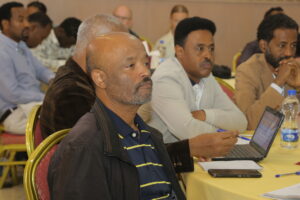
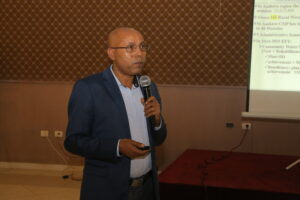
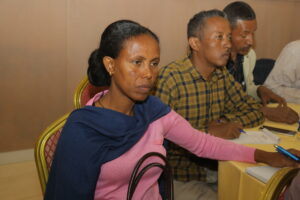
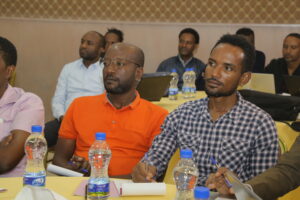
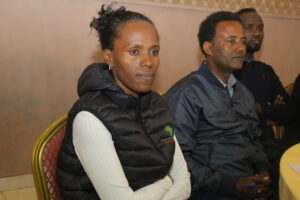

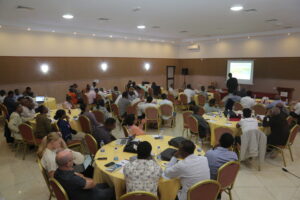
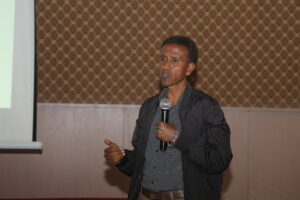
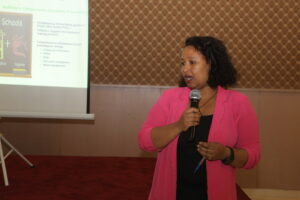
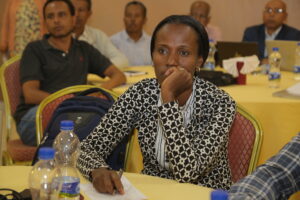


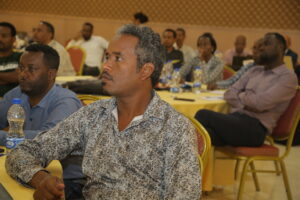
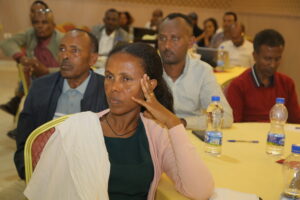
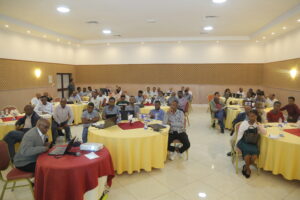
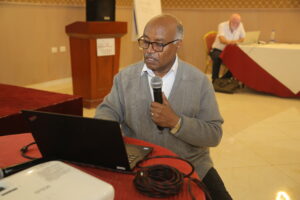
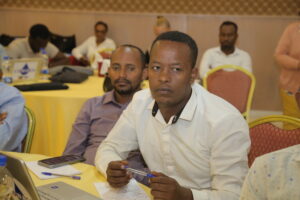
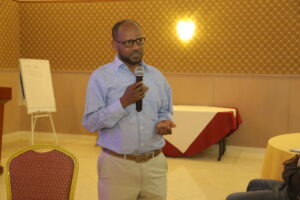
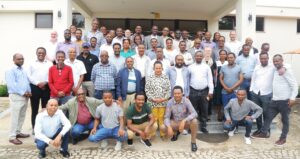
Girls in Central Ethiopia Thrive with the COWASH IV Menstrual Hygiene Management Center
A simple solution is making a big difference for girls’ education in Central Ethiopia. In EFY 2015, the Community-Led Accelerated WASH (COWASH IV) project constructed a Menstrual Hygiene Management (MHM) center at Fofa General Secondary School, Central Ethiopia Region, which has a student body of 1,084 with 462 of them being girls. This four-room haven offers a resting room, bathroom, waiting area, and counseling rooms. Today, the project celebrates the MHM center’s remarkable success in empowering girls and promoting educational equity.
Prior to the MHM center’s construction, many girls faced a critical barrier to education – a lack of access to proper hygiene facilities during their menstrual cycles. This often resulted in missed classes due to pain, discomfort and embarrassment.
The MHM center provides a safe space equipped with essential supplies and privacy. This seemingly simple solution has a profound impact on students like Kalkidan Banteayehu, a 12th grader. “Before the MHM center, I missed classes due to period pain,” Kalkidan shares. “Now, I can attend school regularly and focus on my studies without worry.” Mekdes Degefu, a 10th grader, expresses similar gratitude. “Having the MHM center means I don’t have to go home to rest when I have my period. This facility is crucial for all schools.”
The impact extends beyond individual students. Dedicated teacher Zara Ali has witnessed a noticeable change in the classroom environment. “The MHM center has created a sense of relief and stability among our female students,” Zara explains. “They are more attentive and engaged in learning. I am incredibly grateful to COWASH IV for building this center. Their initiative to expand the MHM program to other schools is commendable.”
Meaza Kebede, gender and disability inclusion specialist at COWASH IV, praises the Fofa MHM center as an exemplary facility. It adheres strictly to the Ministry of Education’s design guidelines, ensuring a functional and accessible space. The center is always open to provide support to students, with a dedicated counselor readily available. Meaza also commends the school for creating a welcoming environment that encourages girls to utilize the facility. These combined efforts will undoubtedly contribute to achieving the program’s goals, she emphasized.
While initial use of the MHM center was a challenge due to cultural stigmas, Zara and a few brave students who used it from the beginning championed awareness creation. Now, these efforts along with the ongoing MHM awareness campaigns within the school, many girls are embracing the facility. During a visit to the MHM center in late March, Meaza Kebede was impressed by the girls’ comfort and enthusiasm in using the facility. This positive observation, Meaza noted, is a testament to the growing awareness surrounding menstrual hygiene management among the students.
COWASH IV’s commitment goes beyond Fofa. Since the program’s inception, the project has constructed 19 MHM centers across 16 project Woredas, following the design provided by the Ministry of Education. Aiming to further expand this initiative, COWASH IV is carrying out an assessment in different project regions.
The COWASH IV MHM program goes beyond just building centers. The initiative includes creating awareness through MHM training and reusable sanitary pad production workshops for teachers across project regions. Additionally, comic books and brochures on menstrual hygiene management have been distributed to schools.
The success of the Fofa MHM center serves as a powerful example of how addressing basic needs can significantly improve educational attainment for girls in Ethiopia. By addressing menstrual hygiene needs and promoting menstrual health education, COWASH IV is empowering girls to stay in school and reach their full potential.
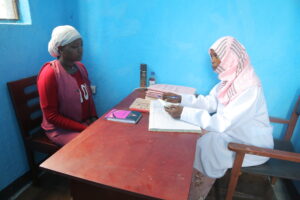
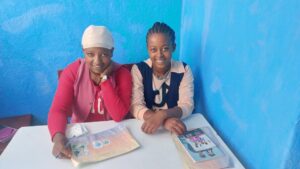
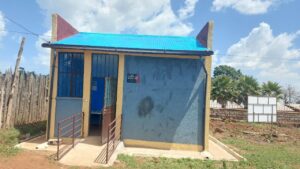
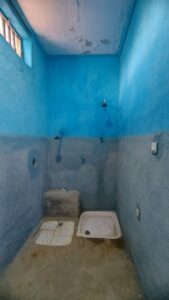



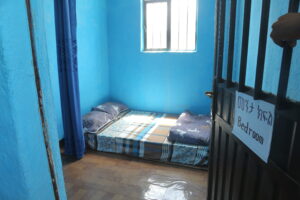
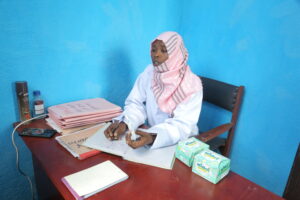
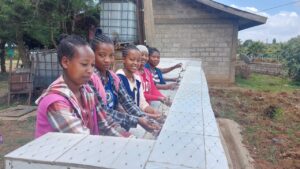
COWASH IV Explores Transforming WASH Saving and Loan Associations into Sustainable Sanitation Cooperatives
COWASH IV, a project committed to long-term WASH (Water, Sanitation and Hygiene) sustainability in rural Ethiopia, recently held discussions with key stakeholders to explore the potential of existing WASH Saving and Loan Associations (SLAs) evolving into Rural Savings and Credit Cooperatives (RWSCCs).
The field visit conducted in Yem Zone Central Ethiopia from 19-20 March 2024 focused on strengthening the established WASH SLAs. Previously, COWASH IV facilitated the establishment of five WASH SLAs in Wegencho Kebele at the end of EFY 2014. These groups, with a total of 152 member households, received essential training and successfully achieved their initial goal of constructing improved household latrines with functional handwashing facilities for all members.
Looking Towards Empowering Communities Through Financial Independence:
With the initial objective accomplished, COWASH IV and WASH SLA leaders are setting their sights on the future. Recent discussions involved Zonal and Woreda level officials, cooperative development experts, and WASH SLA leaders. The central theme of these discussions was the potential for WASH SLAs to transform into formal RWSCCs.
This transition holds significant promise, particularly for WASH SLA members who aspire to improve their WASH facilities, especially piped household water access, which is often hindered by financial constraints.
RWSCCs: A Promising Path to WASH Sustainability:
RWSCCs offer and foster financial services and independence for WASH SLA members, which empowers them to collectively save and pool resources for WASH infrastructure projects like household piped water systems. It will also enable them to manage their WASH needs autonomously, achieving long-term sustainability. Beyond empowering existing members, RWSCCs can facilitate access to credit for sanitation and hygiene improvements or even establish market-based sanitation businesses within the community.
This initiative has the potential to establish the first WASH RWSCCs in Ethiopia, serving as a model for other communities seeking WASH sustainability. The discussions highlighted the potential of this initiative and the willingness of local stakeholders to collaborate. COWASH IV FTAT plays a key role in facilitating these discussions and exploring the possibilities.
With 60 successful WASH SLAs established in Amhara, Central, Oromia, and Sidama regions, COWASH IV’s commitment to empowering communities is clear. Their focus on developing RWSCCs represents the next step toward long-term WASH sustainability. By supporting these initiatives, COWASH IV is paving the way for a future where communities can effectively manage their own WASH needs and build a healthier future.
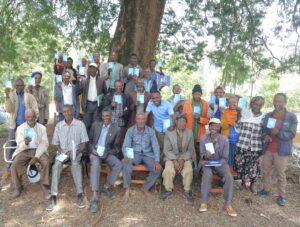
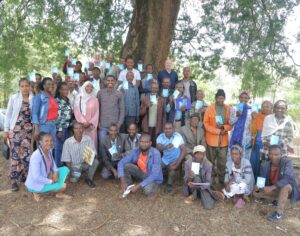


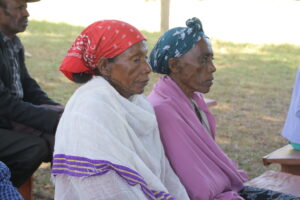





From risky treks to peaceful mornings: How COWASH IV transformed the village of Edo Kebele
For six-grader Selam Baremo, sunrise wasn’t the start of a new day but the signal of a new round in her daily battle. Before reaching the first school bell, she had to conquer a treacherous hour-long hike up a steep and narrow road to the Edo Segele spring, her back burdened by a heavy water container on the return journey. Exhausted and late, Selam felt school was more like a chore than a chance to learn. Winter’s muddy paths added another layer of danger to her already arduous journey.
Nestled in Ethiopia’s Sidama region, Edo Kebele boasts breathtaking landscapes and abundant resources. Yet, access to clean water has remained a constant struggle. The remote location of the spring made it nearly impossible for elders, especially, to collect water. This placed the burden on children like Selam, impacting their education and health.
A fresh water spring closer to home
Everything changed eight months ago when the long-standing community-led water, sanitation and hygiene (COWASH) project partnered with the local community. Working hand-in-hand with them, the COWASH team constructed six community water points fed by piped water from the Edo Segele spring, bringing clean water almost to their doorstep. Selam’s trek was transformed into a five-minute stroll.
“Now I have time to study, attend my classes actively, and even play with friends!” beams Selam, her eyes sparkling with newfound freedom. “Before, I was always tired and late, missing out on so much.”
Her story echoes across Edo Kebele. Aberash Agena, a second-grader, recalls dragging herself back from the spring, too weary to learn. Meselech Yoseph, an elder, shares how her grandchildren missed school to fetch water, sacrificing playtime and education.
Beyond basic needs: unlocking potential and improving lives
The water points have not just delivered convenience, they have unlocked potential. Freed from the daily chore of gathering water, families now have enough water for their household tasks and cattle, fostering better hygiene and health. Aster Kelaqa, a young mother, can finally dedicate time to her children and community activities.
The impact extends beyond daily life. “Before the water points, mothers like me couldn’t afford to fetch water in the mornings,” says Aster. “No matter where we were, at the market or visiting friends, by midday we’d rush home, grab our containers, and hurry to the spring before darkness fell. That path was scary, even in daylight. We were all constantly worried and stressed, racing against the clock to get home and then back to the spring.”
Aster’s experience reflects that of many women in Edo Kebele. “Since COWASH IV built the water points right here, near our homes, everything has changed. We no longer worry about the time. We can fetch water whenever we need it, calmly and safely. This frees us up to do other things, from chores and markets to social events and activities. We don’t have to rush anymore and brings a sense of peace and calm to our lives.”
For Paulos Yonase, a father of six, the constant worry about his children venturing on the dangerous path is a distant memory. “Accidents were common,” he says. “My daughter fell and injured herself, requiring days in the hospital. Now, we can all breathe easier, knowing our families are safe because they no longer take that dangerous path.”
More than just clean water and peace of mind, the COWASH project has led to a significant decrease in waterborne diseases, bringing immense relief and improved health. Mathiwose Buchere, a WASH committee member, proudly shares, “since the water points were built, we’ve seen a remarkable drop in illness, especially among children. Parents no longer have to fear their kids getting sick from contaminated water.”
The transformation in Edo Kebele extends beyond the presence of water points. Recognising the importance of community ownership and sustainability, COWASH IV partnered with the local WASH committee to establish a robust management system. Two local artisans from each kebele (ward) received comprehensive training, equipping them with the skills to maintain the water points. This ensures any minor repairs or maintenance needs are addressed promptly and efficiently.
For larger issues beyond the artisans’ expertise, the Wondo Genet woreda (district) steps in to provide support. This collaborative approach ensures the water points remain functional and accessible for the long term, empowering the community to take charge of their own water security. This commitment to community ownership is a cornerstone of COWASH IV’s approach.
Far reaching results
COWASH IV’s impact extends far beyond this one community in Wondo Genet. From July 2022 to June 2023, the project constructed 17 new community water schemes and rehabilitated two existing points, bringing clean water to 7,621 people in the woreda. Additionally, COWASH IV has constructed water supply points and improved latrines in four schools and a health post over the same period of time. These facilities in schools alone have directly benefited 7,016 students, teachers and staff. The project also constructed one menstrual hygiene management facility in one Wondo Genet public school.
Along with infrastructure, the NIRAS-implemented COWASH IV project is raising awareness and facilitating savings groups to empower communities to build better sanitation facilities at home. Furthermore, the team’s commitment extends to capacity building. To date, 501 individuals have received training, including WASH committee members, woreda and kebele level experts. This empowers communities to manage their water resources effectively and maintain the water points themselves, ensuring sustainability.
Edo Kebele’s story is a testament to the transformative power of access to clean water. COWASH IV, in partnership with communities like Edo Kebele, is rewriting narratives, replacing struggles with dreams within reach.
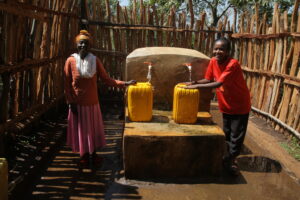

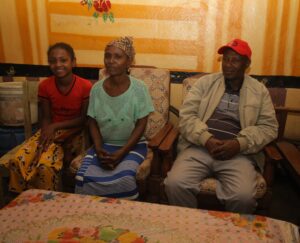

Empowering Rural Ethiopian Communities: WASH Education Videos
COWASH IV, beyond WASH infrastructure, is committed to empowering rural Ethiopian communities with the knowledge and practices to improve hygiene and sanitation. To achieve this, COWASH IV has developed educational materials including videos, audio messages, and posters – in three local languages: Amharic, Afan Oromo, and Sidamu Afoo.
These materials focus on three key areas:
🔹 Improved household latrines
🔹 Proper handwashing techniques
🔹 Safe water handling and treatment
To maximize reach, COWASH IV is collaborating with regional partners to broadcast these messages through radio and TV channels. Additionally, posters, audio clips, and videos are being distributed to schools, health centers, and community leaders for further dissemination.
By equipping communities with the tools and knowledge they need, COWASH IV is fostering a culture of hygiene and sanitation that will have a lasting impact for generations to come.






